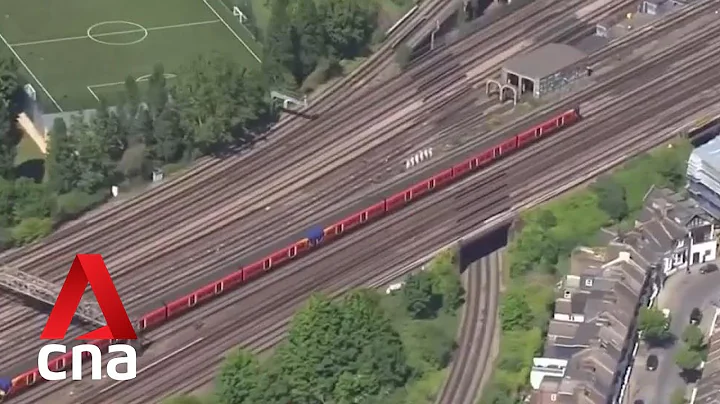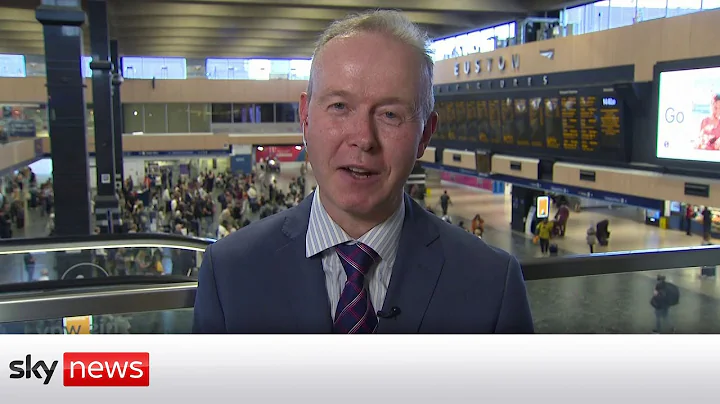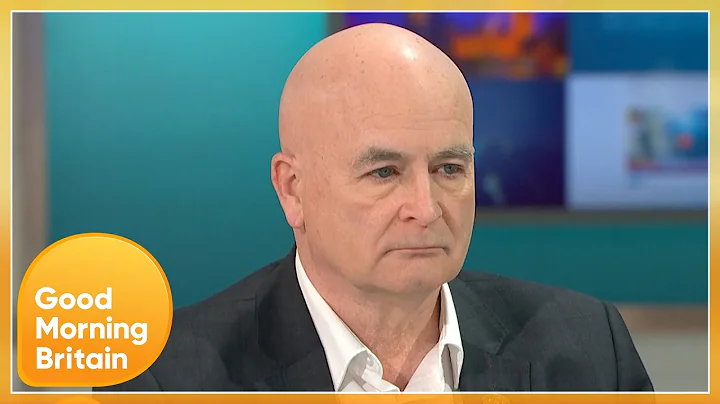
According to reports, the British railway system will conduct the largest strike in 33 years. Photo/IC photo
On June 20, local time, Simon Clark, the Chief Secretary of the British Treasury, said that due to the failure of negotiations to achieve results, the railway strike planned to be launched by the British Rail, Maritime and Transport Union on June 21 is likely to be held as scheduled.
More than 40,000 rail workers will take part in the strike action, including employees from 13 of England's 15 train operating companies and London Underground. More than 10,000 workers are on strike on the London Underground alone.
The British Rail, Maritime and Transport Union plans to launch three consecutive national strikes on June 21 (Tuesday), 23 (Thursday) and 25 (Saturday), with each strike starting at midnight. This will be the largest strike action in the UK since 1989. It is estimated that the strike may lead to a 0.3% to 0.4% drop in UK GDP in June, with one in 20 Britons unable to commute due to the strike.
Inflation and salary restrictions are the root cause of the strike
The cause of this strike is the high inflation rate in the UK, which has seriously affected people's lives. In March, the British CPI rose by 7.3%, and in April it rose to 9%. Some economists predict that the UK CPI will rise by 9.1% in May, and the Bank of England is even more pessimistic, believing that the inflation rate will rise by more than 11% later this year.
Inflation rates are rising month by month, and have driven Britons' real incomes to their lowest point in 20 years.
British railway workers have not received a pay increase since the outbreak of the epidemic in 2020. The reason is that the number of people traveling has dropped significantly. So far, after the UK "lay down" and no longer restricted people's travel, railway passenger capacity has only returned to 75%.
In this case, Network Rail is looking for ways to save money. For example, the elimination of population ticketing points is estimated to save 500 million pounds - this is actually a disguised layoff. In addition, salary increases are frozen.
Speaking of which, British railway workers are relatively well paid. Data from the British Department of Transport shows that the median salary of British railway workers reaches 44,000 pounds, and the average salary of drivers is nearly 60,000 pounds, which is much higher than the national median wage of 25,971 pounds.
However, the union believes that the government data is exaggerated by 11,000 pounds because it does not include low-paid workers such as cleaning workers. In fact, low-end workers are indeed the main force in the British railway workers' strike, and the drivers do not intend to participate.

British Prime Minister Johnson . Photo/Xinhua News Agency
The Johnson government added fuel to the fire
In order to resist the pressure brought by inflation, the British Rail, Maritime and Transport Union and the employer Network Rail held multiple rounds of negotiations to demand wage increases.
’s concession from the employer is that it can raise wages by 2% and the month of the wage increase will be traced back to January this year; if the transport capacity is restored, there will be two more wage increases in the next year, with each increase of 0.5%. However, union negotiators believed that such wage increases could not keep up with the nearly double-digit inflation increase, and the negotiations broke down on June 18.
Regarding this important labor negotiation, the Johnson government did not play its due mediating role, but instead added fuel to the fire. Johnson believes that at this stage of high inflation, private companies should "pay attention" to soaring inflation levels and should limit salary increases, otherwise they may cause "long-term damage" to the economy.
British Transport Secretary Grant Shapps spoke more "frankly", accusing the railway workers' strike action of being a "huge mistake" and even "blackmail".
The remarks of Johnson and Shapps do represent the traditional attitude of the Conservative Party towards strikes. During Mrs. Thatcher 11 and a half years as prime minister, Mrs. Thatcher adopted a non-compromising attitude in the face of the coal miners' strike in 1984-1985 and the railway workers' strike in 1989.
Because it was "encouraged" by the Johnson government, British Rail Network Company once had a very tough attitude, and even prepared to recruit temporary workers through agency companies to replace the positions of striking workers. The leader of the British opposition Labor Party Keir Starmer accused Johnson's government of this, saying that if the government had not "added fuel to the fire", the strike might not have happened.
There are more industry unions preparing to take action
Under the pressure of inflation, not only British railway workers, but also more unions are preparing to take strike action to demand wage increases.
The British Teachers Union has stated that if the Education Secretary does not improve the salary increase by this Wednesday, it will initiate a voting process to vote on whether to strike. Medical staff in the British National Health Service (NHS) are also discussing whether to take strike action.
Speaking of which, British teachers, nursing staff and care workers have even more reason to take strike action. Before taking office as Prime Minister in 2019, Johnson promised to increase the starting salary of qualified teachers from £25,714 to £30,000, but action has been slow. The median salary of nurses in the UK is 31,093 pounds, and the median salary of carers is only 16,502 pounds. In comparison, British railway workers' salaries are relatively high.
The median wages of British railway workers, teachers and nursing staff all exceed the British national median wage, and their ability to resist inflation is relatively strong. If they can't stand it, what about ordinary people? Once ordinary people also stand up, the Johnson government will inevitably fall into a larger storm.
writing / Xu Lifan (columnist)
editor / Ma Xiaolong
proofread / Chen Diyan





















